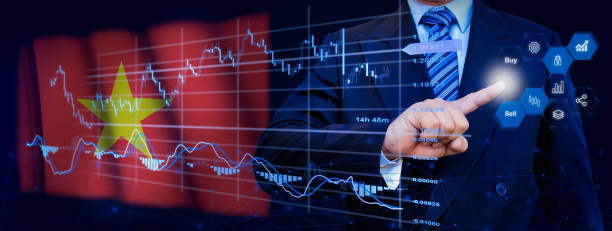Non-market Economy Status

- 10 May 2024
Why is it in the News?
Vietnam has been pushing the President Joe Biden administration to quickly change its “non-market economy” classification to “market economy”, in a bid to avoid high taxes imposed by the US on the goods imported from the Southeastern country.
Why does Vietnam Want to Get the ‘Market Economy’ Status?
- Vietnam has argued that in recent years it has implemented enough economic reforms that get its name off the non-market economies list.
- The country does meet a number of criteria for the status to be changed.
- For instance, Vietnam allows foreign investment, wages are determined by free negotiations between workers and management, and most of the means of production are not owned by the state.
- The change in status will also help Vietnam get rid of the anti-dumping duties, making its products more competitive in the US market.
- Vietnam’s Center for WTO and International Trade has said that the method of calculating anti-dumping duties is flawed as it causes “the dumping margin to be pushed up very high” and does not actually reflect the situation of Vietnamese companies.
About Non-market Economy Status:
- Non-market economy status refers to a designation applied to countries by international trade authorities, particularly the World Trade Organization (WTO), based on their economic structure and policies.
- In a non-market economy, the allocation of resources, production decisions, and pricing mechanisms are predominantly influenced by the government rather than by market forces.
- This can include state ownership of key industries, government intervention in setting prices, and restrictions on foreign investment and trade.
- For trade purposes, countries classified as non-market economies may face different treatment in anti-dumping investigations and trade disputes.
- This designation can affect how trade regulations and tariffs are applied to goods originating from these countries.
- The US designates a country as a non-market economy based on several factors which are:
- If the country’s currency is convertible
- If wage rates are determined by free bargaining between labour and management
- If joint ventures or other foreign investments are allowed whether the means of production are owned by the state; and
- If the state controls the allocation of resources and price and output decisions.
- Other factors like human rights are also considered.
- The non-market economy label allows the US to impose “anti-dumping” duties on goods imported from designated countries.
Market Economies:
- Market economies operate based on the interactions between consumers and businesses, guided primarily by the law of supply and demand, rather than by central government policies.
- Theoretical Foundation: Developed by classical economists like Adam Smith, David Ricardo, and Jean-Baptiste Say, market economies emphasize the role of free markets in allocating resources efficiently.
- Modern Market Economies: Often referred to as mixed economies, modern market economies may still involve some government interventions, such as price-fixing, licensing, quotas, and industrial subsidies, but the majority of decisions are market-driven.
- Examples include countries like India, the USA, and the UK, where market forces play a significant role in shaping economic activities.
What is Anti-dumping Duty?
- An anti-dumping duty is a protectionist tariff that a domestic government imposes on foreign imports that it believes are priced below fair market value.
- In order to protect their respective economy, many countries impose duties on products they believe are being dumped in their national market; this is done with the rationale that these products have the potential to undercut local businesses and the local economy.
- While the intention of anti-dumping duties is to save domestic jobs, these tariffs can also lead to higher prices for domestic consumers.
- In the long term, anti-dumping duties can reduce the international competition of domestic companies producing similar goods.
- The World Trade Organization (WTO)–an international organization that deals with the rules of trade between nations–also operates a set of international trade rules, including the international regulation of anti-dumping measures.?
